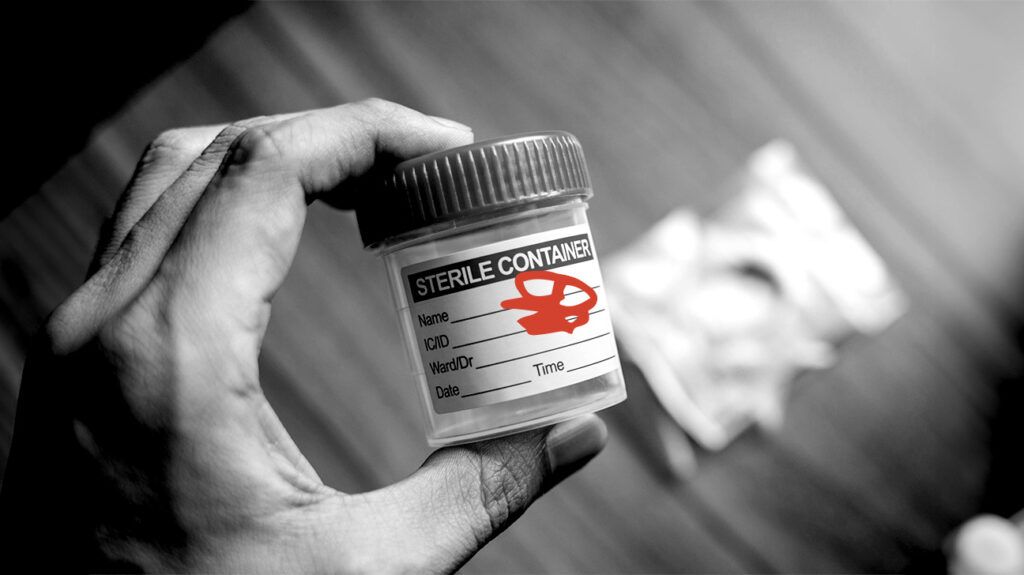Stool samples can help doctors diagnose some health conditions. Tips for collecting a stool sample include urinating before collecting the sample and using any tools that the sample kit provides.
Stool is the material in a person’s bowel movement. People may also refer to stool as feces or poop. Healthcare professionals in a laboratory analyze stool samples to detect certain substances that may indicate someone has a health condition.
People usually collect stool samples at home using a kit. They then store and return the samples to a healthcare facility, where scientists analyze them. Depending on the results, healthcare professionals can make a treatment plan or request further diagnostic tests.
This article explores what to do before collecting a stool sample, how to collect and store stool samples, and how to return them. It also discusses why doctors use stool samples.

Healthcare professionals
Each test has
Some foods or medications may affect the results of some types of sample tests. Different types of tests may also have different instructions for collecting the sample.
Stool sample kits typically include a sample tube, instructions, and a collection spoon or spatula. They may include a canister or resealable bag to put the tube in after collecting a sample. Some may provide gloves for a person to wear during collection.
Different stool sample kits may provide
A person always needs to follow the instructions with their kit. However, some common steps to collect a stool sample include:
- Labeling the sample tube: A person may need to label the collection tube with the date, their name, and personal details. This may include their date of birth and address.
- Washing hands thoroughly: A person needs to wash their hands before they collect the stool sample.
- Urinating before collecting the sample: This is to avoid contaminating the sample.
- Placing a collection object in the toilet: This is to catch the stool, and the object may be an empty plastic container. It may also be clean, plastic wrap, secured around the brim of the toilet with tape.
- Passing stool over the container or wrap: People should not urinate at the same time.
- Using the spoon or spatula provided with the test kit: People need these to put the required amount of stool into the tube. This may be a piece of stool no bigger than a dime. They should then close, seal, or screw the lid of the tube tight.
- Placing the tube in the provided bag or canister: A person needs to ensure they seal the bag or canister.
- Safely disposing of any remaining stool: People can then flush any remaining stool into the toilet. They also need to safely dispose of anything they used to collect the sample.
- Washing hands thoroughly again: A person needs to wash their hands after collecting the sample and dispose of any equipment they used to collect the sample.
People may be able to mail some types of stool samples to the required healthcare facility. However, they may need to do so within certain time limits or mail the sample in refrigerated containers.
If a person stores the sample over a longer period, the bacteria in the stool
People may need to return some samples within
A person may need to store a sample before returning it. However, stool sample kits may have different storage instructions. People need to keep some types of stool samples cool, using a refrigerator or cool pack.
Storing samples at higher temperatures
Doctors can use stool samples to
They then use this information to help determine whether a person has any underlying health conditions,
Healthcare professionals
Screening tests also help doctors find atypical growths, or polyps, which may eventually turn into colorectal cancer. Healthcare professionals can then remove them.
Healthcare professionals typically provide stool sample kits for people to collect samples at home.
Different types of tests may have different instructions, and most feature a sample tube and collection device. People can follow the instructions to put a sample in the tube using the collection device. Stool sample kits may also have different storage and return instructions.
Stool samples can help healthcare professionals diagnose certain conditions. They may also help doctors screen for colorectal cancer before someone has symptoms.
A person needs to speak with their doctor if they have questions about using a stool sample kit.
